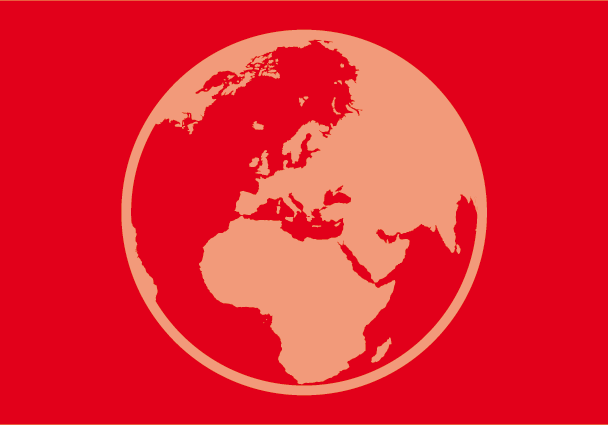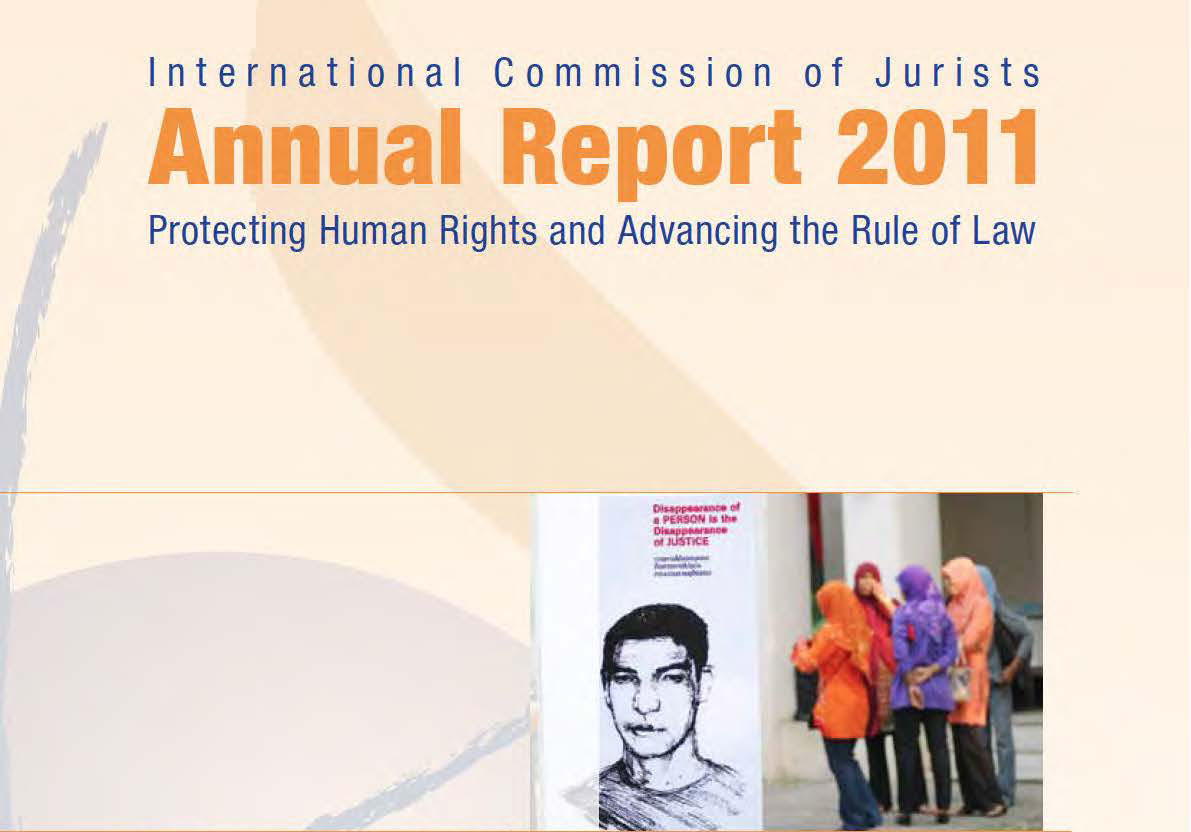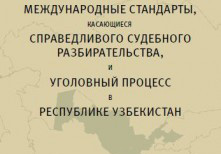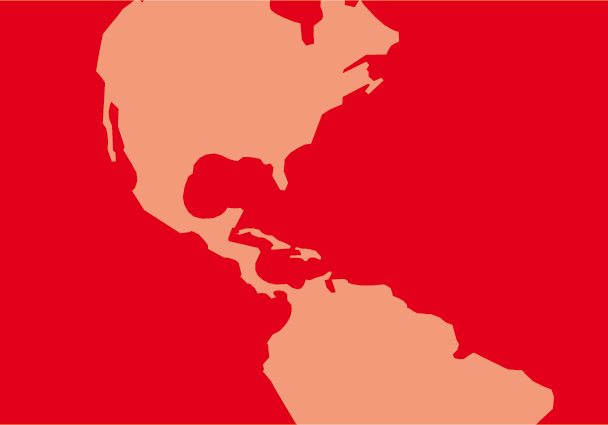
Aug 8, 2012
 In 2011, the political and economic landscape of the Middle East was altered as ordinary people, motivated by a desire to realize their human rights, challenged their rulers in a way that had never been done before. As protests against repressive regimes swept across the Middle East in 2011, the ICJ’s work in the region became increasingly relevant. Projects previously seen as unfeasible, such as those related to constitutional and legal reform, are today being pursued with an unprecedented level of engagement.
In 2011, the political and economic landscape of the Middle East was altered as ordinary people, motivated by a desire to realize their human rights, challenged their rulers in a way that had never been done before. As protests against repressive regimes swept across the Middle East in 2011, the ICJ’s work in the region became increasingly relevant. Projects previously seen as unfeasible, such as those related to constitutional and legal reform, are today being pursued with an unprecedented level of engagement.
Read more on ICJ’s achievements in 2011 in the Annual Report.
Download here: AnnualReport 2011

May 24, 2012
 A new report launched by the ICJ shows that companies involved in human rights abuses in the Democratic Republic of Congo (DRC) are rarely held accountable
A new report launched by the ICJ shows that companies involved in human rights abuses in the Democratic Republic of Congo (DRC) are rarely held accountable

Feb 23, 2012
 This ICJ publication provides a systematic overview of the international law and standards and Uzbekistan law relating to fair trial and due process in the criminal domain.
This ICJ publication provides a systematic overview of the international law and standards and Uzbekistan law relating to fair trial and due process in the criminal domain.
International Fair Trial Standards and Criminal Procedure in Uzbekistan, an ICJ publication on fair trial standards with a specific country focus, provides a systematic overview of the international law and standards and Uzbekistan law relating to fair trial and due process in the criminal domain. Its main sources are international law, standards and jurisprudence developed by human rights protection bodies at the universal and regional level as well as national criminal legislation of Uzbekistan. It is the first attempt to provide a comprehensive analysis of criminal procedure and trial with regard to Uzbekistan and in the region, and it is the first such comparative study of domestic proceedings and international standards pertaining to fair trial.
Uzbekistan-fair trial standards-publication-2012-rus

Feb 20, 2012
 Victims of human rights abuse by companies – mainly the oil industry – in Nigeria have very limited access to legal remedies and reparation, a new report by the ICJ shows.
Victims of human rights abuse by companies – mainly the oil industry – in Nigeria have very limited access to legal remedies and reparation, a new report by the ICJ shows.

Aug 2, 2011
 Access to justice and effective legal remedies are crucial elements in the protection of human rights in the context of business activities.
Access to justice and effective legal remedies are crucial elements in the protection of human rights in the context of business activities.

 In 2011, the political and economic landscape of the Middle East was altered as ordinary people, motivated by a desire to realize their human rights, challenged their rulers in a way that had never been done before. As protests against repressive regimes swept across the Middle East in 2011, the ICJ’s work in the region became increasingly relevant. Projects previously seen as unfeasible, such as those related to constitutional and legal reform, are today being pursued with an unprecedented level of engagement.
In 2011, the political and economic landscape of the Middle East was altered as ordinary people, motivated by a desire to realize their human rights, challenged their rulers in a way that had never been done before. As protests against repressive regimes swept across the Middle East in 2011, the ICJ’s work in the region became increasingly relevant. Projects previously seen as unfeasible, such as those related to constitutional and legal reform, are today being pursued with an unprecedented level of engagement.











